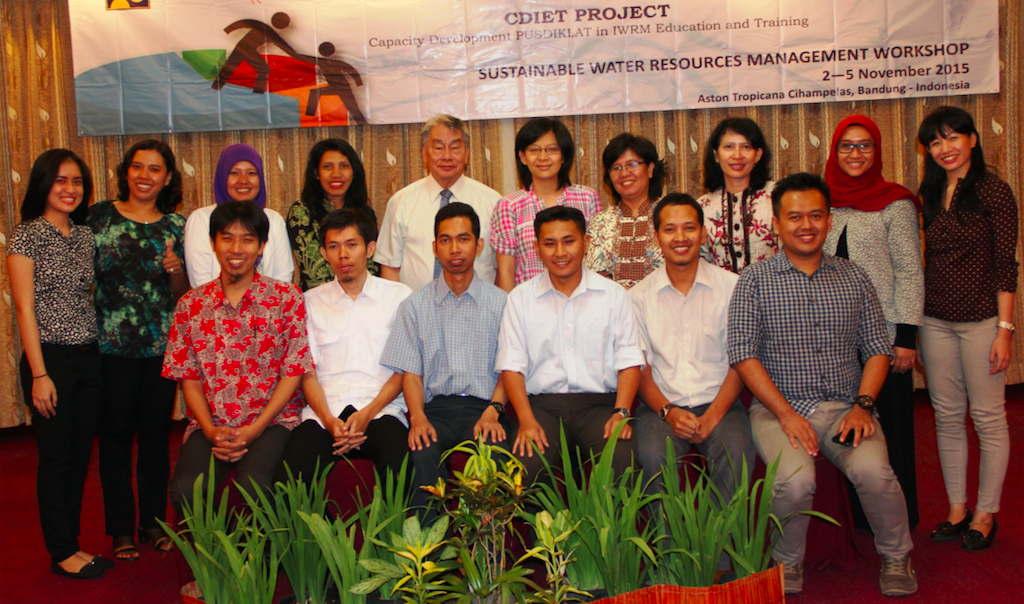Climate change and the hydrological variability of water’s distribution and occurrence are natural driving forces that, when combined with the pressures from economic growth and major population change, make the sustainable development of our water resources a challenge.
The need to develop more sustainable practices for the management and efficient use of water resources, as well as the need to protect the environmental ecosystems where these resources are located, has led to fundamental shifts in awareness and public concern over the past decade. However, despite increased awareness of the issues at stake, economic criteria and politically charged reasoning are still driving water resource development decisions at most local, regional, national and international levels.
Many ASEAN Countries, such as Indonesia, is still lacking of information, knowledge, and manpower to efficiently dissolve water resources-related problem, therefore it will be important to share information about best practices, new initiatives and technology transfer in water resources. Meanwhile, the provision of technical assistance, financial assistant and national networking are essential to support Indonesia to conduct its water resources-related activities. Additionaly, capacities development in water resources management in Indonesia is mandatory.
To answer these challenges, CKNet Indonesia in collaboration with IHE Indonesia and CDIET Project organize Sustainable Water Resources Management workshop.
The SWRM program is a 4-day workshop, where concepts, methodologies and case study are presented.
The goal of this workshop is to strengthen the participants’ knowledge on the importance of Sustainable Water Resources Management in planning and implementation water resources management. Principles at national, regional and river basin levels. In addition, a review of impact based training concepts will be provided to enhance management of the learning process in training programmes to arrive at improved training programmes focused on impact on the water sector.
A group work is included in the workshop. The participants are requested to develop a strategic plan for urban water management based on their vision of a selected city in 2050. ')}
